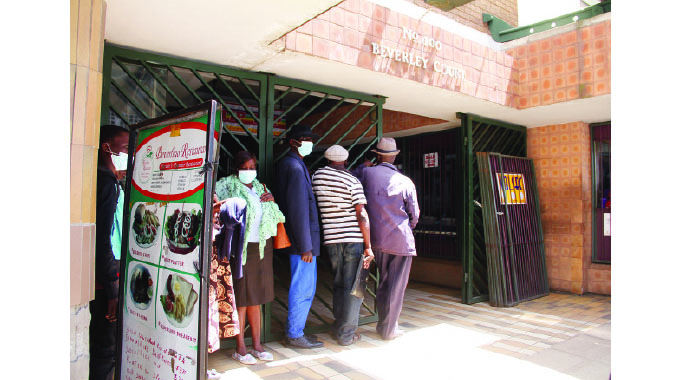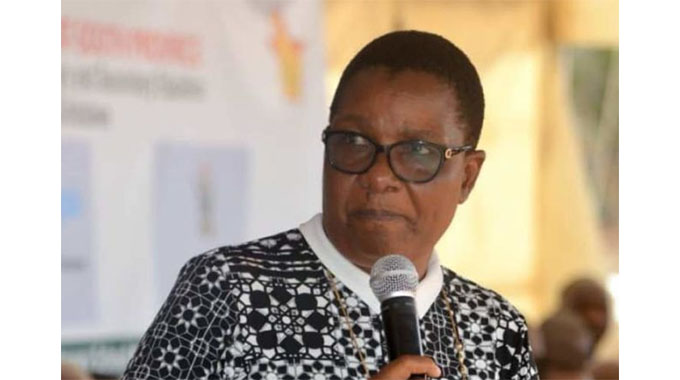Pensioners start accessing forex

Precious Manomano-Herald Reporter
Pensioners, the elderly, people living with disabilities and those needing to cover foreign currency medical bills yesterday started accessing foreign currency from financial institutions without any hassles.
Pensioners commended the Government for giving them a practical chance to access US$50 per week from bureaux de change through a revised Reserve Bank of Zimbabwe facility, instead of the previous theoretical facility that saw others gaining access ahead of pensioners.
Initially, the facility was meant for every citizen requiring modest sums of foreign currency at the official exchange rate for domestic payments and other purchases by going through bureaux de change, which were allowed to charge up to 10 percent over the cost of funds.
However, the facility became prone to abuse and corruption as many used it to deal in currency, prompting monetary authorities to limit it to just four groups: pensioners, the elderly, people living with disabilities and people needing hard currency for medical expenses.
When The Herald visited bureaux de change in Harare yesterday, the long queues seen at the bureaux over the past few months had disappeared, save for trickles of the elderly, pensioners among them.
The senior citizens praised the Government for recognising them, saying the move would see them regaining their dignity and curb corruption.
An excited Mr Michael Ncube (68), a pensioner from Glen View, said the initiative would go a long way in alleviating his financial challenges.
“The move by the Government to revise the US$50 facility has come as a blessing to me and other vulnerable people. In the past only young people were benefiting as they elbowed us out,” he said.
“I used to sleep here, but due to the shortcomings of age, I would go home empty-handed on all occasions. Through this facility limited to us I am looking forward to a change of fortunes for my family.”
Another beneficiary, Mr Constantine Nyereyegona (67), of Beatrice Farm, said the old system was open to abuse, and appeared to side-line the elderly.
“While the initiative was a noble one, it birthed corrupt tendencies among workers of the bureaux de change and citizens requiring foreign currency,” said Mr Nyereyegona.
“It was difficult to access the US$50 allowed per week, particularly for senior citizens like me. We used to spend nights here to no avail. Now it is our time to acquire forex for domestic purchases and to access medical services.”
Sixty-year-old Mrs Hilder Chihera of Buhera expressed the same sentiments saying the decision by the Government was a positive one, as it would help in curbing corruption.

The senior citizens praised the Government for recognising them, saying the move would see them regaining their dignity and curb corruption.
Chairman of the National Disability Dialogue, Mr Gift Mabhaudhi, said the facility will give them the opportunity to sustain their families and embark on income-generating projects.
“We are grateful to the Government for coming up with such a wonderful and inclusive initiative. It speaks to the Second Republic’s thrust not to leave anyone behind in the country’s people-oriented programmes,” said Mr Mabhaudhi.
“We can now afford basic needs for our children. Also, we can even do a variety of projects in order to supplement our incomes.”
To curtail abuse of the revised facility, officials at the bureaux de change visited by The Herald were verifying national identity and retirement documents of all those seeking assistance.
However, others excluded from the new arrangements expressed disaffection, saying the rules were rather excessive as not everyone was abusing the facility.
The US$50 per week facility to ordinary walk-in customers at bureaux de change, which began in September last year, was aimed at promoting financial inclusion and equal access to for small value transactions.
However, on Monday in his 2022 Monetary Policy Statement, RBZ Governor, Dr Mangudya, said the facility had fallen prey to some members of the public who were now buying and selling foreign currency on the black market, instead of buying it for specific needs.










Comments